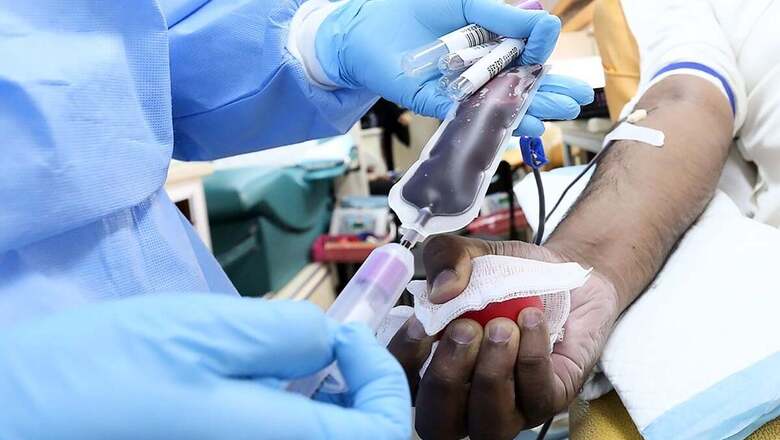
views
The central government will review the off-label use of convalescent plasma therapy soon after the results of the Indian Council of Medical Research’s study of the therapy are peer-reviewed and published. ICMR Director-General Dr Balram Bhargava on Tuesday said the body, along with the national task force on coronavirus and the Union Health Ministry’s joint monitoring group, will review the issue when the trial results are out soon.
A pre-print of the results of the ICMR trial, which was the largest one on plasma in the world, were published last week. It showed that plasma therapy, which is much sought after by patients and some doctors, had no real benefits in reducing mortality among moderately-ill Covid-19 patients and also did not prove effective in halting the disease from worsening. Since the results were published in the pre-print, neither the ICMR nor the Health Ministry have commented on the issue and on the questions posed by the results on plasma banks functional in Delhi and Maharashtra.
“Plasma therapy has been used for over 100 years now, in some for or the other. It has been used against Ebola and Covid-19 too. The trial we did was the world’s largest plasma trial and it shows it does reduce mortality or prevent progression of disease from moderate to severe. There are a few cases where adverse reactions can occur. Once the peer review happens and we get the full publication, we will take a considered view on plasma,” said Dr Bhargava during a government press briefing on Tuesday.
The ICMR study was carried out on 464 moderately-ill patients. They were divided into two groups of 235 and 229 patients each. The intervention arm was given CP while the control arm was given the best standard care. As per the study, 34 people (13.6%) died in the intervention arm and 31 people (14.6%) in the control arm.
On the result of the national sero-survey published last week, the government said the infections estimated as part of the seroprevalence study should not be compared to the data of cases reported officially. “In daily testing, we are trying to know how many people have the virus inside their body whereas in a seroprevalence stud, we see if they have antibodies, to see the spread of the infection. The results of this study should be compared one to one with numbers of positive cases reported,” said Health Minister Joint Secretary Rajesh Bhushan.
“The purpose of a sero-survey is an epidemiological tool, to understand the state of the epidemic. One survey alone will not help. Geneva did it for five weeks continuously. States too have been doing these surveys. The national sero survey was repeated in the same districts and we shall have the results soon and we can compare the two,” said Dr Bhargava.




















Comments
0 comment